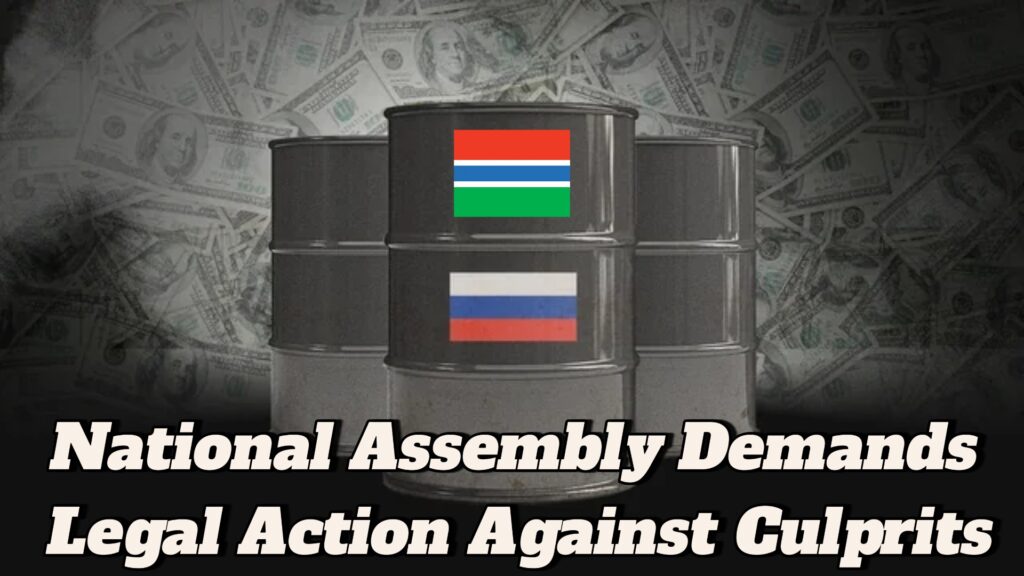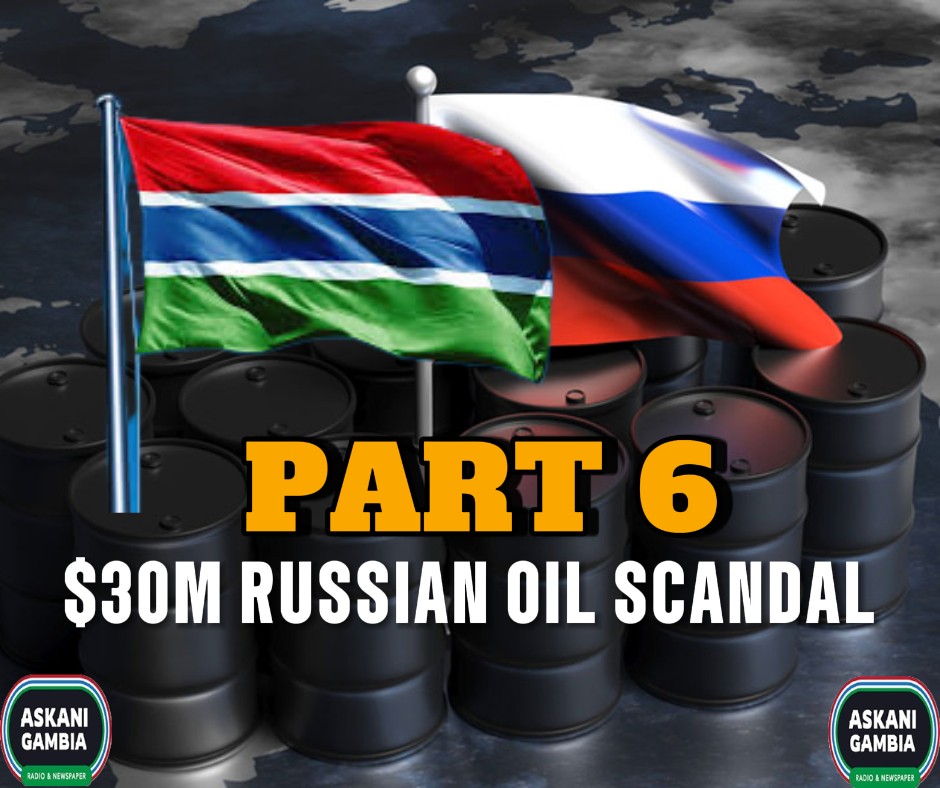
(Fuel Files Series – FPAC & PEC Petroleum Inquiry, 2023 – 2025)
When Parliament’s Joint Committee of FPAC & PEC opened its public hearings in early 2025, few expected that routine petroleum shipments could reveal one of the most complex financial webs in recent Gambian history.
Three unfamiliar names stood behind the 36,935 metric tonnes of fuel, worth about US $30 million: Apogee FZC, Creed Energy, and Universal Bank Ltd (UBL).
They shared access to ullage space, foreign exchange, and institutions that should have known better.
How the Chain Worked
The paper trail began with Apogee FZC, a Dubai-registered firm licensed to import petroleum into The Gambia.
Instead of selling directly to local oil marketing companies, Apogee entered into back-to-back arrangements with Creed Energy Ltd. This little-known intermediary did not have a petroleum licence under PURA regulations.
Creed Energy then used UBL accounts to receive and disburse payments for the cargoes.
Funds moved between foreign suppliers, Creed’s accounts, and Gam Petroleum’s storage fees, with almost no real-time verification by regulators.
When the Central Bank and PURA noticed that the transactions had cleared, the product had been sold, and the profits had been pocketed.
The Comfort Letter That Broke Protocol
One document caught the Committee’s attention: Access Bank Gambia Ltd. issued a “comfort letter” on behalf of Creed Energy.
It wasn’t a letter of credit, nor a guarantee, but a bland note assuring suppliers that payment would be “facilitated.”
The Central Bank of The Gambia (CBG) testified that Access Bank acted imprudently. Creed Energy had no petroleum licence, so no business was involved in fuel transactions.
That single letter opened doors to multi-million-dollar trades and raised the question, how could a bank clear petroleum-related transactions for an unlicensed entity without triggering an anti-money-laundering alert?
Inside Gam Petroleum
Gam Petroleum’s General Manager (GM) told the Committee he merely “facilitated storage” and had no knowledge of the financing chain.
Yet the evidence showed that ullage space was allocated to Apogee and its partners even when established OMCs like Oryx and Atlas were denied capacity.
When PURA ordered the ullage system suspended in September 2023, the GM ignored it.
By the time auditors arrived, the records were patchy and the Board was in the dark.
FPAC & PEC concluded that management had “operated outside the Board’s authority” and fabricated certain reconciliations after losses occurred.
Money Moving Through UBL
UBL became the nerve centre of Creed Energy’s transactions.
Foreign currency inflows were broken into sub-accounts and forwarded to Gam Petroleum or overseas suppliers.
Bank statements reviewed by the Committee showed multiple round-trips of the same funds within days, a red flag for possible trade-based money laundering.
Still, CBG stopped short of calling it a crime, labelling it instead “weak due diligence and insufficient KYC monitoring”.
Meanwhile, the Ministry of Petroleum & Energy and the GRA failed to record the imports in national systems (IFMIS / ASYCUDA). Tens of millions of dollars moved through a shadow loop beyond the state’s tax and statistics radar.
Government Response
In its August 13, 2025, reply to Parliament, the Government acknowledged that the FPAC & PEC Inquiry did not establish bribery, money laundering, or tax evasion by Apogee, Creed, or UBL.
However, it was also accepted that the findings revealed serious governance and regulatory failures.
The President directed an independent police investigation into possible conflict of interest and ordered a National Audit Office review of ullage allocations for 2023.
No public update has yet been issued on either investigation.
What the Trail Reveals
The fuel was real; the oversight was not.
A foreign firm (Apogee) brought in the cargo, a non-licensed middleman (Creed) moved the money, and a local bank (UBL) processed it under a veil of respectability.
Regulators watched from the sidelines while letters, emails, and “comfort assurances” stood for actual controls.
It perfectly illustrated how The Gambia’s energy architecture, built to guarantee fuel security, could be used as a private pipeline for profit.
The People’s Cost
When forex reserves tighten and pump prices rise, Apogee, Creed, or UBL does not pay.
The public servant spends half their salary on transport, the fisherman who cannot afford diesel, and the student and women vendors whose fares double overnight.
Each time oversight fails, the poor subsidise the powerful.
What Still Needs Answers
- Who authorised Creed Energy to handle fuel payments without a licence?
- How did UBL classify the transactions in its anti-money-laundering reports?
- Why did PURA’s order to suspend the ullage system go unheeded?
- Has the National Audit Office begun its review, and where is its report?
- Will the police probe lead to prosecution or quiet absolution?
The Moral Bottom Line
The $30 million fuel trail was not a simple theft.
It was a mirror held up to the state, showing how fragile institutions become when political and corporate interests mix without checks.
Until complete audits and criminal accountability restore public trust, every litre sold will smell of unanswered questions.
By Jallow Modou, Financial Analyst, Washington D.C., USA

